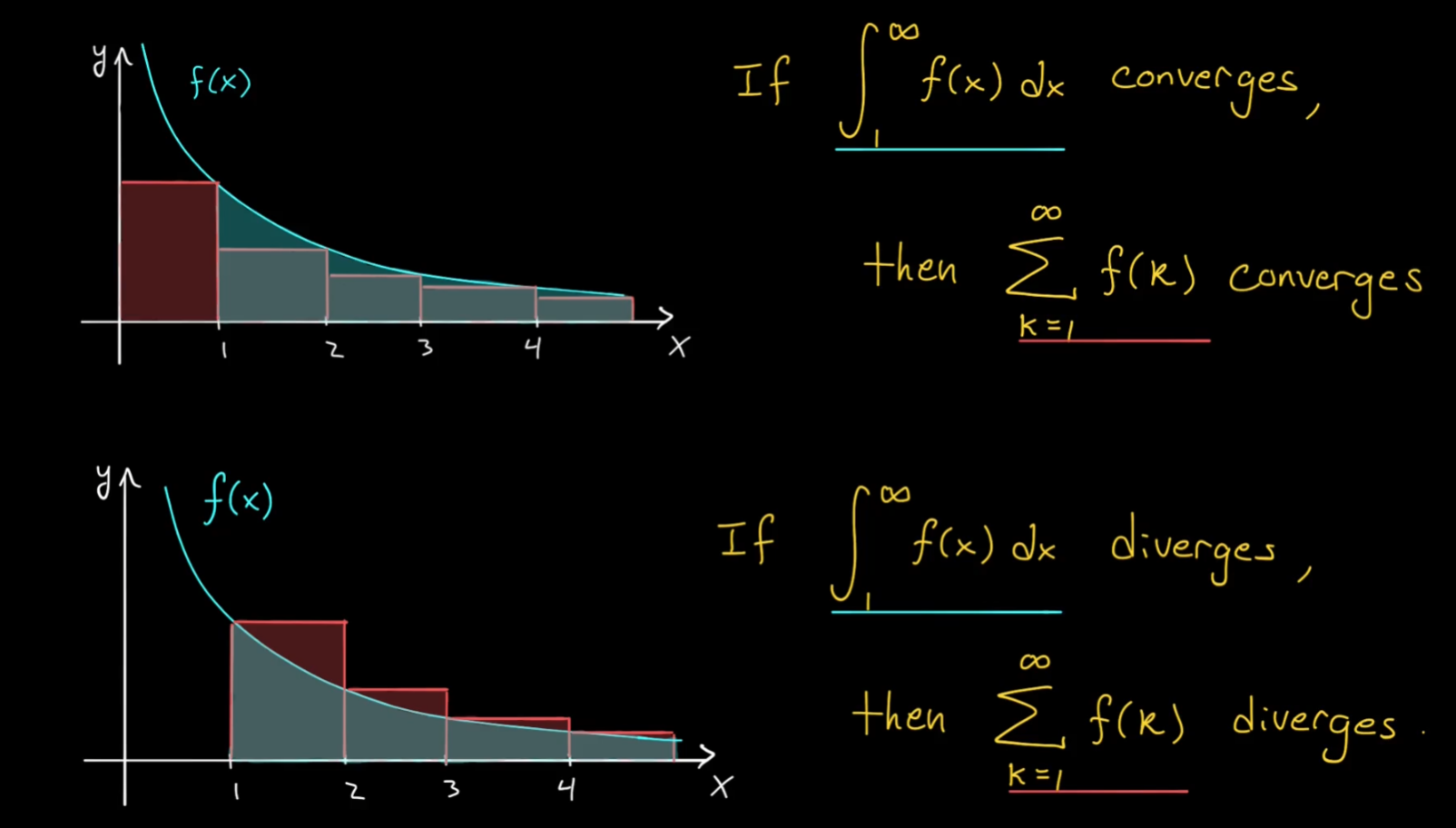Series
Infinite series
An infinite series (or just series) of constants is defined as a limit of finite series:
Geometric Series
A geometric series can be written in the form The sum of Geometric series is given by
new kind of series from CS370
Doesn’t have to sum to infinity where
- Applying this for example to compute the number of nodes in a tree,
Telescoping Series
a telescoping series is a series whose general term can be written as the difference of two consecutive terms of a sequence, i.e.
Convergence / Divergence Tests
Convergence Test
Used on geometric series.
n^{th}Term Test (Test for Divergence)If , then diverges.
DANGER: If , we cannot make any conclusions about divergence or convergence.
The Integral Test (Condition to use: all
a_k > 0)Theorem: Consider a series . Let be a function which is continuous, positive, and decreasing on , with for all .
- If converges, then converges.
- If diverges, then diverges.

Convergence of P-Series
Direct Comparison Test (Condition to use:
a_k > 0)Given a positive series . If we find another series , where
- , and if converges, then converges.
- , and if diverges, then diverges.
Limit Comparison Test (
a_k > 0)Assume that the following limit exists (or ):
- If (non-zero constant), then converges converges
- They either both converge or both diverge
- If , and converges, then also converges
- If , and diverges, then also diverges
Alternating Series Test (AST) / Leibniz Test
Consider the series , where for every . If
- is a decreasing sequence, and
- ,
then the series converges.
Alternative Series Estimation Theorem (ASET)
Consider the series , where for every . If
- is a decreasing sequence, and
- ,
Then .
Assume that the following limit exists (or ):
- If , then is absolutely convergent.
- If , then is divergent.
- If , then the test fails.
The Root Test
Assume that the following limit exists (or ):
- If , then is absolutely convergent.
- If , then is divergent.
- If , then the test fails.
Conditional vs. Absolute Convergence
A series is called absolutely convergent if converges.
Absolute Convergence Implies Convergence
If the series converges, then also converges.
A series is said to be conditionally convergent if it converges, but the series diverges.
To check between for absolute convergence, we use The Ratio Test.